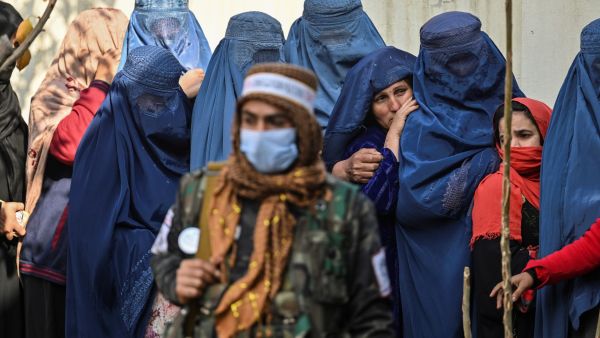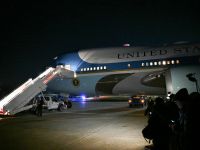Taliban’s secret operatives, embedded in governmental organizations, played a key role in helping the group lay siege to Kabul after the hasty US withdrawal from the war-torn country last August, according to a report.
According to a report published in Wall Street Journal, undercover Taliban agents – clean-shaven, wearing jeans and sporting sunglasses – spent years infiltrating Afghan government ministries, universities, businesses and aid organizations.
Taliban seize power as Washington debates what went wrong https://t.co/mLJ5DyrGQ3 pic.twitter.com/5MFP02OgXc
— The Hill (@thehill) August 16, 2021
They waited for the opportunity to help the group make a comeback after 20 years of armed struggle and topple the US-backed government in Kabul.
The report interviews a former Taliban militant commander who now heads the Kabul airport security command center, Mohammad Salim Saad, on how these undercover agents managed to pull off a blood-less coup, overthrowing both the government headed by Ashraf Ghani and his western backers.
"We had agents in every organization and department. The units we had already present in Kabul took control of the strategic locations,” he is quoted as saying in the report, sitting before a bank of closed-circuit TV monitors at the Kabul Airport.
“We had people even in the office that I am occupying today,” he says, referring to the Kabul airport security command center, which he oversees now.
Taliban’s secret operatives, embedded in governmental organizations, played a key role in helping the group lay siege to Kabul after the hasty US withdrawal from the war-torn country in August, reveals a report.
According to a report published in Wall Street Journal, undercover Taliban agents – clean-shaven, wearing jeans and sporting sunglasses – spent years infiltrating Afghan government ministries, universities, businesses and aid organizations.
They waited for the opportunity to help the group make a comeback after 20 years of armed struggle and topple the US-backed government in Kabul.
The report interviews a former Taliban militant commander who now heads the Kabul airport security command center, Mohammad Salim Saad, on how these undercover agents managed to pull off a blood-less coup, overthrowing both the government headed by Ashraf Ghani and his western backers.
"We had agents in every organization and department. The units we had already present in Kabul took control of the strategic locations,” he is quoted as saying in the report, sitting before a bank of closed-circuit TV monitors at the Kabul Airport.
“We had people even in the office that I am occupying today,” he says, referring to the Kabul airport security command center, which he oversees now.
Another agent, Kamran, who didn’t want to reveal his surname, said he had the duty to take over the Ministry of Higher Education and Kabul University, where he became a Taliban recruiter while pursuing a master's degree in Arabic.
He estimates to have invited about 500 people, mostly students, to join the insurgency since he started his studies in 2017. To maintain his cover, he shaved his face, wore sunglasses and dressed in jeans.
“Many of our friends who had beards were targeted,” Kamran recalled. “I was above suspicion. While many of our low-ranking friends were arrested, I wasn't. Even though I was their leader,” he boasted.
He was recognized as a member of the Taliban by his former classmates and teachers only when he appeared with a gun on August 15, he is quoted as saying in the report.
“Many employees of the ministry and the entire staff of the university knew me. They were surprised to see me,” Kamran added, who is reportedly the head of security for Kabul-based universities.
Selling cannabis to Australians in the first trade deal after the Taliban seize power https://t.co/qP2sagtk05
— Cengiz Adabag (@CengizAdabag) November 25, 2021
Meanwhile, university lecturer Ahmad Wali Haqmal said he repeatedly requested the Taliban leaders for permission to join the armed struggle against the US-backed government after he completed his bachelor's degree in Shariah law.
“I was ready to take the AK-47 and go because no Afghan can tolerate the invasion of their country,” he recalled.
“But then our elders told us, no, don't come here, stay over there, work in the universities because these are also our people and the media and the world are deceiving them about us,” he said.
Haqmal is now the chief spokesman for Taliban-run finance ministry.
After the botched US exit from Afghanistan, the group effectively took control of the country, placing these secret agents in key positions within the government, which has not been recognized by the international community yet.
This article has been adapted from its original source.










